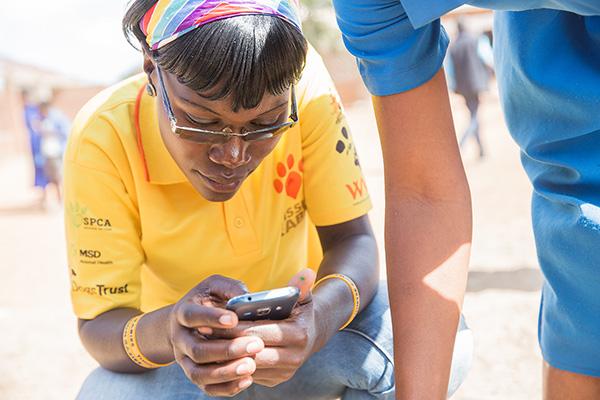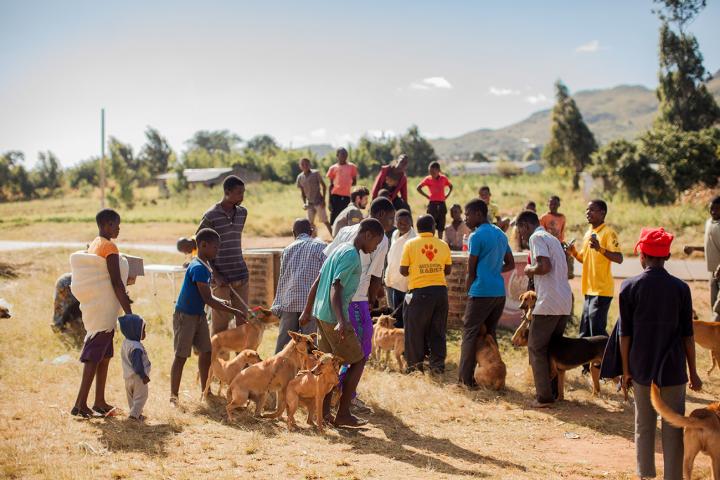App to combat rabies reaches over 1.5 million entries
Mission Rabies app - used to direct teams in numerous rabies control campaigns - has reached over 1.5 million data entries in 16 countries.

Rabies transmitted by dogs kills an estimated 59,000 people a year, despite it being proven that mass dog vaccination can eliminate the disease.
Historically, the collection of large amounts of data from animal populations in low income countries was extremely difficult, creating barriers to the up-scaling of vaccination programmes to national levels. Innovative solutions are now needed to reach the World Health Organization's goal to eliminate canine-transmitted rabies by 2030.
The advent of mobile phones and app technologies has transformed the ability of researchers to gather information from remote destinations. Andy Gibson, a PhD student at the Royal (Dick) School of Veterinary Sciences and Director of Strategic Research at Mission Rabies, has developed an app called 'Mission Rabies App', which allows data to be collected quickly and efficiently during dog rabies vaccination campaigns in Africa, Asia and South America.
So far, this app has allowed data to be collected during the vaccination of over one million dogs. The data gathered is incredibly valuable for the planning, monitoring and refinement of health care interventions as information such as precise GPS location of all dog vaccinations together with information on the age, breed, sex and heath of each dog is collected.
The app has recently been further developed to allow information to be gathered on other dog healthcare initiatives such as assessments of vaccination coverages, measurement of dog population size and roll out of neutering campaigns.
Andy Gibson and colleagues at the Royal (Dick) School of Veterinary Sciences, The Roslin Institute and Mission Rabies have recently published a study describing how the development and roll out of this app has transformed data collection in overseas disease studies.
This app will hopefully transform the way dog rabies vaccination campaigns are carried out in developing countries, making them more efficient and effective. This could potentially decrease the number of people killed by rabies transmitted by dogs each year.
We are delighted that a Dick Vet student has developed such an important and widely used piece of technology which is accelerating the implementation of animal welfare initiatives across the world.

Related links
Workshop shows commitment to make Goa rabies free
Dog study shapes plan to wipe out rabies


